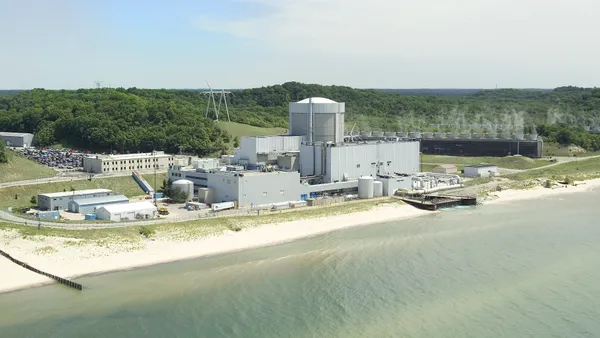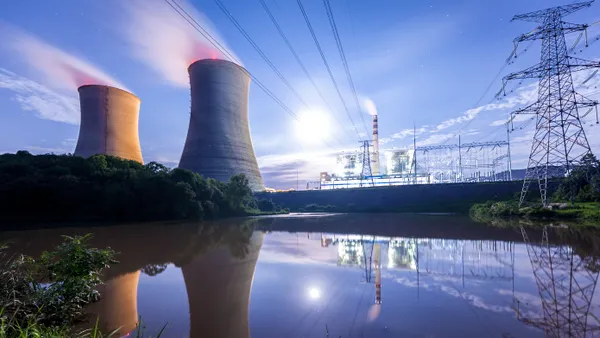Dive Brief:
- Texas regulators are planning a technical workshop in August to examine possible changes to its energy marketplace in response to concerns over persistently-low prices.
- In May, generators Calpine and NRG filed a white paper with the Texas Public Utility Commission seeking changes to the Electric Reliability Council of Texas' pricing and settlement rules, arguing that the state may not be able to attract sufficient new generation to ensure reliability.
- Specifically, the paper proposed changes to the Operating Reserve Demand Curve, which determines when scarcity pricing events occur. Generators say the problem is low natural gas prices and subsidized wind generation.
Dive Insight:
Texas regulators are aiming for an August workshop on Calpine and NRG's proposal, but Commissioners stressed this week that the need for market reforms is not urgent.
"There's plenty of time for us to discuss these things; there's no fire," Commissioner Brandy Marty Marquez said at an open meeting this week.
The commission will not take public comments until after the workshop. Before the event, the PUC will provide certain information including an assessment of a local reserve product or local operating reserve demand curves.
The generators' white paper proposal was authored by William Hogan of the Harvard Electricity Policy Group and Susan Pope of FTI Consulting. They argue the lower prices are due to both low gas prices and subsidized wind generation.
Natural gas prices last year in ERCOT "were at their lowest level for 15 years," they wrote, and "the average real‐time price in 2016 of $24.65/MWh was the lowest on record for ERCOT."
Texas has no capacity market, and generators make their revenues in the shorter-term energy market. Typically, they rely on scarcity pricing events — which can pay up to $9000/MWh during periods of high demand — to cover their fixed costs, but higher penetrations of subsidized wind power can cut down on the frequency of such events.
That dynamic has sparked concern that over time Texas may not be able to attract and retain enough flexible capacity to meet demand spikes and integrate ever-growing amounts of renewables. Those worries were compounded earlier this year by the bankruptcy of Panda Temple Power, a natural gas plant that entered service only in 2014.
That retirement could "put the kibosh" on financing for merchant plants in ERCOT, Steven Gilliland, president and CEO of Federal Power, a Houston based developer, told Utility Dive at the time. “Developers are going to have to do it on their own nickel.”














